Darby's Rangers

Brief Synopsis
Cast & Crew
William A. Wellman
James Garner
Etchika Choureau
Jack Warden
Edward Byrnes
Venetia Stevenson
Film Details
Technical Specs

Synopsis
During World War II, Maj. William Orlando Darby tries to convince his superior, Brig. Gen. W. A. Wise, that he should be named commanding officer of a new combat unit. When Wise refuses to give the position to Darby, who has no combat experience, Darby receives permission to argue his case to Gen. Truscott. Within minutes, Darby wins over the general with his impassioned description of an elite force of guerrilla commandos to precede the troops and secure the front lines, whom he suggests calling the "American Rangers," and is awarded the post of commanding officer. With Great Britain's commando force as an inspiration, the Rangers' headquarters are established in Dundee, under Scotsman Lt. Dave Manson. Four thousand volunteers are culled from American troops in the United Kingdom, including pugnacious Sims Delancey, womanizer Tony Sutherland, gambler Hank Bishop and Heavy Hall. Despite the British officers' disapproval, Darby insists on forming personal relationships with each of his men.
At the start of training, Manson, who describes himself as vicious, informs the recruits that they are about to endure "brutally enforced discipline." Due to a lack of housing, however, they are allowed to bunk with various citizens of Dundee, a privilege that includes private bedrooms and access to the town's young women. Hank has already met a girl he fancies, bus ticket-taker Wendy Hollister, and Tony immediately attracts the attention of Sheilah, the wife of his host, kind, older John Andrews. Rollo Burns arrives late to training, and Darby, annoyed, tests the soldier's mettle by tossing a grenade into Rollo's hand. Unaware that it is a dud, Rollo smashes the major's window to throw the grenade out and hurls himself over Darby to protect him. Secretly pleased, Darby gruffly orders Rollo to his quarters, where the boy discovers a comely young woman, Peggy. They are flirting in his room when they are interrupted by Peggy's father, whom Rollo is dismayed to realize is his gruff training sergeant, McTavish.
The men train relentlessly for the next weeks, after which only 450 remain. When promotions are awarded, Darby plans to delay announcing them to his men until after the next phase of training, until his second-in-command, M/Sgt. Saul Rosen, slyly mentions Darby's own promotion to colonel. Realizing how much the titles mean to the soldiers, Darby relents. Phase two of training is even harsher, including endless drills in shooting, running, climbing, crawling and hand-to-hand combat. One night, the boys set up flimsy tents in pouring rain, and although the privates complain, they are pleased to discover that Darby is suffering alongside them. Tony sneaks back to the Andrews' home where, despite her pleas to the contrary, he succeeds in seducing Sheilah. The boys are awarded passes to London, where Hank brings Wendy to dinner along with Heavy and Sims. She offers to find them dates, and although the boys assume her friends will be "dogs," they are ecstatic when two pretty girls arrive. Wendy invites Hank back to her flat, and when a bomb raid sounds, soothes Hank's fears by kissing him. In the morning, she declares her love for him and invites him on a walk in the country.
Upon reaching a large estate, Wendy reveals that her parents, Sir Arthur and Lady Hollister, live there, and that she has brought him to meet them. They are wary of the unsophisticated young man and Hank, upon realizing that Wendy plans to marry him, declares himself a "hobo" and a gambler, then leaves. The privates then begin mountain climbing training, during which the callous Tony falls to his death, just as Sheilah loses John by informing him that she is in love with the boy. As training ends, Rollo informs McTavish that he has fallen in love with Peggy, and after he announces he is willing to fight him for her, the sergeant happily welcomes him into the family. The boys prepare to ship out, and Wendy comes to bid Hank farewell, ignoring his warning that he does not believe in marriage by stating that she is confident that he will return to her. On 8 November 1942, the Rangers head to North Africa to secure the beachhead for naval ships. As a result of their courageous operations, the Allies win the Battle of North Africa decisively, and the battalion goes on to Sicily.
This time, the mission is even more dangerous and some men are lost, including a lieutenant. His replacement is Lt. Arnold Dittman, a by-the-book West Point graduate with little experience who immediately chastises Rollo for missing guard duty, fails to sympathize with the private, who is distraught after killing his first man. Darby counsels Rollo that when he looks into the eyes of his children, he will understand why he fought and killed. In October 1943, the Rangers move on to Sorrento, and are granted leave in Naples. After Dittman spots local girl Angelina De Lotta refusing to be de-loused, he intervenes on her behalf and she invites him to her apartment. Assuming she is a prostitute, Dittman offers her money, then leaves in shame when she responds with proud tears. Wracked with guilt, he arranges a translator job for her. During the next battle, Dittman orders the men into danger over their objections, and when the troops are boxed in by enemy fire, commands them to retreat while he holds off the Italians. Hank, Heavy and Sims ignore his orders in order to aid him, and together they emerge victorious. A year passes during which the Rangers are assigned to hold a steady position, prompting Darby to insist that his elite troops be better utilized.
To this end, they are returned to Naples, where Dittman rushes to tell Angela that he loves her. Finding her pregnant and ill, he leaves in disgust and drinks all night. When he returns to the camp, Darby, who has learned from Angela that her fiancé was killed by the Germans, tells Dittman that she has suffered enough, and that it takes a big man to handle a big mess. Inspired, Dittman tries to requisition penicillin for Angela, and upon learning that it can only be distributed to military families, marries her. Although the baby does not survive, Angela soon recovers, and Dittman promises to be a good husband. The Rangers' next assignment is to take the town of Cisterno, a task Saul considers routine, but Darby, who has had a nightmare about it, dreads. With no radio contact, the first battalion, led by Dittman, moves in but are soon bombarded by German fire.
Darby attempts to relieve them with more troops, but they are surrounded and forced to lay in wait in a fog-covered field. The cries of the wounded men draw more artillery fire, and realizing that they are trapped, Darby reluctantly orders a retreat. Sims has been killed in action and back at camp, Rollo dies in Darby's arms. The few that survive the battle are proud to learn that they held off and escaped a fully mounted offensive by Hermann Göring's Panzer Division. With few men left, the Rangers are disbanded and shipped home. Hank returns to Wendy and Dittman to Angela, while Darby is recalled to the Pentagon. Saul accompanies him to the carrier that will take him back to America, and the friends bid goodbye. Darby passes the incoming troops dispiritedly until he hears them admiring the Ranger patch on his arm, and with his head now held high, he salutes his fellow soldiers.

Director

William A. Wellman
Cast

James Garner

Etchika Choureau

Jack Warden

Edward Byrnes
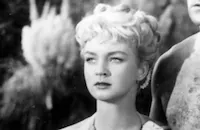
Venetia Stevenson

Torin Thatcher

Peter Brown
Joan Elan

Corey Allen
Stuart Whitman

Murray Hamilton

Bill Wellman Jr.

Andrea King
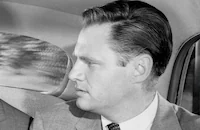
Adam Williams

Frieda Inescort
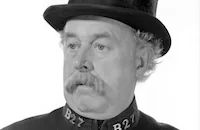
Reginald Owen
Philip Tonge
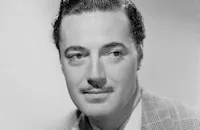
Edward Ashley
Raymond Bailey

Willis Bouchey
Tom Brown Henry
Reggie Dvorak
John Marlin
Joel Smith
Mike Ragan
Julie Reding
Tom Mckee
Edward Colmans
Francis Desales
Miguel Landa
William Hudson
Jerry May

Sean Garrison
Isabella Rhye
Marion Collier
Michael Gibson
Tom Watson

Frank Gifford
Jim De Closs
John Mckee
Michael Pierce
Hilda Plowright
Allegra Varron
Crew
James Altieri
James Altieri
Gordon Bau
Marjorie Best
William Campbell
William Clothier
Robey Cooper
Murray Cutter
Elmer E. Faubion
Robert Gary
Lou Jennings
Mac Julian
William L. Kuehl
Ann Landers
Robert B. Lee
Ann Locker
Owen Marks
Dude Maschmeyer
Everett Miller
2nd Lt. Lee Mize
Colonel Roy A. Murray
Ralph Owen
Ross Owen
Don Peters
Allen Pomeroy
Norman Pringle
Martin Rackin
Sfc Richard Sandlin
Max Steiner
William Thompson
Guy Trosper
Victor Vallejo
George Vieira

Videos
Movie Clip


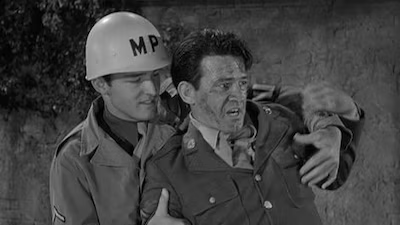
Hosted Intro
Film Details
Technical Specs

Articles
Darby's Rangers
A student of history's greatest warriors, Darby (Garner) convinces a general to let him organize, "guerilla fighters [to fight] the little war -- slash, bleed 'em, and run." Permission is granted and the call goes out to death-defying servicemen to join him in what could be a series of suicide missions. The respondents are a cross-section of the red-blooded American male. There is a fighter, a gambler, a lover, a kid, and a "shavetail" West Point officer. There's an Irish-American, a Jew, a Southerner; men from Texas, Arkansas, New Jersey. Tried by fire, the melting pot of American males must put aside their individuality and learn to function as a homogenous unit -- a brilliant theme, but one that runs through many a classic war movie, including Howard Hawks's Air Force (1943), Carol Reed's The Way Ahead (aka The Immortal Battalion, 1944), and Allan Dwan's Sands of Iwo Jima (1949).
The unit undergoes rigorous training in northern Scotland, and are allowed to mingle with the locals. Just about all of the woman-starved G.I.'s in Darby's command find themselves a love interest, and thereby illuminate the character of the two-fisted American soldier: loud and abrasive on the outside, gallant and kind on the inside.
Reno card sharp Hank Bishop (Stuart Whitman) hooks up with a London bus conductor (Joan Elan); innocent Private Rollo Burns (Peter Brown) falls for a nineteen-year-old Scottish girl (Venetia Stevenson); and wet-behind-the-ears officer Arnold Dittman (Edd Byrnes) is love-struck by an impoverished Italian woman (Etchika Choureau). Only one of the soldiers conducts himself dishonorably -- Tony Sutherland (Corey Allen), who seduces a Scottish housewife (Andrea King) -- but he is summarily punished by fate for his transgression.
The New York Times quipped, "You might gather from Darby's Rangers...that the major interest and pursuit of the special combat force of American soldiers that bore that tag in World War II was chasing after women. Virtually every conspicuous Ranger in this film, with the exception of the stalwart commander, runs down and catches himself a dame."
Once their training is complete, the "mustang outfit" is dispatched to Northern Africa, and then shipped out to "tear up a little real estate" in Sicily, Naples, and a fog-shrouded battleground in Anzio, where the Rangers face their first heavy losses.
While Darby's Rangers appears to the casual viewer a state-of-the-art war picture, it was already something of a relic at the time of its release. In the wake of the Korean War, as America slid deeper into the Cold War, the propagandistic war picture was supplanted by more cynical and violent pictures such as Robert Aldrich's Attack (1956) and Stanley Kubrick's Paths of Glory (1957). By 1958, a film such as Darby's Rangers seemed positively old-fashioned. Even though Warner Brothers tried to contemporize the drama with all the romantic entanglements (after the pattern of From Here to Eternity, 1953), Darby's Rangers truly belongs in the 1940s, alongside Wellman's other WWII classics: Story of G.I. Joe (1945) and Battleground (1949).
Darby's Rangers is anything but cynical. As Bosley Crowther wrote in his New York Times review, "The adventures presented in this war film constitute a recruiting officer's dream."
The film's gung-ho outlook is reflected in the painted slogans that adorn Darby's offices. These hard-boiled platitudes include, "Danger to a Ranger is no stranger," "If troops are fit, they can endure any kind of hardship," "The surprise night attack is our greatest secret weapon," and the most poetic: "Surprise the enemy, then butcher and bolt." There is no sense of irony in the motivational placards, so rigid they allow no room for introspection on the part of Darby or, for that matter, the audience. They are as unequivocal as the film itself.
The film was based on the 1945 book Darby's Rangers: An Illustrated Portrayal of the Original Rangers by James J. Altieri, himself a veteran of Darby's troupe. This was not Altieri's first brush with Hollywood. He served as technical consultant on Michael Curtiz's Force of Arms (1951, starring William Holden).
Nor was it Wellman's first encounter with the elite special forces. Three former Darby's Rangers -- Roy Murray, Walter Nye, and Chuck Shunstrom -- served as advisors on Story of G.I. Joe, and no doubt regaled the director with stories of their adventures, fueling his interest in a film devoted to the subject. Darby himself died on April 30, 1945 while forcing the German retreat from Italy.
The adaptation of Altieri's book was first announced in 1950, with Rudi Fehr slated to produce. For reasons unknown, the project was shelved. The editor of more then 30 films (including Dial M for Murder [1954] and Key Largo [1948]), Fehr produced only one film in his career, 1953's The Desert Song.
The project was taken off the shelf after the success of Warner Brothers' Battle Cry (1955). In fact, the studio overtly pitched Darby's Rangers to that film's viewership, proclaiming in its ads, "Nothing like it since Battle Cry!" and "The big Battle Cry story of the American Commandos!"
In March, 1957, Warner Brothers announced that Charlton Heston was cast as William Darby. On April 26, just prior to the start of production, Warner Bros. balked at Heston's demand for 5% of the profits, and cast Garner instead, which incited Heston to file a $250,000 lawsuit against the studio for breach of contract. Garner was already part of the outfit -- slated to play Hank Bishop, a role that later went to Whitman.
Another almost-cast member was Tab Hunter (Damn Yankees! [1958]), who was assigned the role of Lt. Dittman. When Hunter dropped out of the project, Dennis Hopper expressed interest in the role, but it was instead awarded to Edd "Kookie" Byrnes, who had yet to achieve TV superstardom on 77 Sunset Strip (1958-1963), and who is exquisitely pompadoured in Darby's Rangers, even though he is playing a WWII combat soldier.
Darby's Rangers was given a wider-than-normal release, playing in an estimated 70 theatres in the New York City area alone. It was also released in the UK as The Young Invaders.
To promote the film, Warner Brothers organized a tour in which Garner presided over dinners in various major cities alongside the highest-ranking Darby Ranger of that locality.
Upon the film's release, The New York Times complained about the excessive attention it paid to the soldiers' amorous exploits. "The conduct of military affairs, including training and combat encounters, is given secondary emphasis in this film. The founding and the fighting of the Rangers are sketched along the way, but even those are described in such fashions as to cloak them in an aura of romance."
The film did not prove particularly resonant for Garner, who in a 1964 interview in The New York Times, called it a "worthless studio picture."
After achieving some notoriety through the release of the film, Altieri returned to the topic for a second book: The Spearheaders: A Personal History of Darby's Rangers (1960), which replaced the narrowly-circulated Darby's Rangers as the definitive book on the subject.
It has been suggested that Wellman agreed to direct Darby's Rangers under the condition that Warner Brothers back Lafayette Escadrille (1958). This film was based on Wellman's own experiences as a pilot in World War I, and would be his final film as director.
Producer: Martin Rackin
Director: William A. Wellman
Screenplay: Guy Trosper
Cinematography: William Clothier
Art Direction: William Campbell
Music: Max Steiner
Film Editing: Owen Marks
Cast: James Garner (Col. William Orlando Darby), Etchika Choureau (Angelina De Lotta/Dittmann), Jack Warden (MSgt. Saul Rosen/Narrator), Edward Byrnes (Lt. Arnold Dittman), Venetia Stevenson (Peggy McTavish), Torin Thatcher (Sgt. McTavish), Peter Brown (Pvt./Cpl. Rollo Burns), Joan Elan (Wendy Hollister, Bishop's girl in London), Corey Allen (Pvt. Pittsburgh Tony Sutherland), Stuart Whitman (Sgt./SSgt./Sfc. Hank Bishop).
C-121m.
by Bret Wood

Darby's Rangers
Quotes
Trivia
Notes
The opening title credit reads, "William A. Wellman's Darby's Rangers." The film begins with voice-over narration by Jack Warden, as "M/Sgt. Saul Rosen," explaining that the picture is dedicated to William Orlando Darby and his brave men. Warden's voice-over narration is then heard intermittently throughout the film. The picture ends with the following written statement: "With great appreciation for the cooperation of the Department of the Army and the Department of Defense...We dedicate this picture to the Rangers, whose rugged hard-hitting methods of training inspired techniques now employed by all fighting units of the United States Army."
As shown in the film, the U.S. Army Rangers were an all-volunteer force, commanded by Darby, first formed to spearhead Allied invasions during World War II. While most of the military incidents depicted in the film are true, the personal stories of the soldiers were fictional and some details of real events were changed, including the speed at which Darby is shown to earn his promotion to colonel. James Altieri, one of the original Rangers who trained with the First Battalion in Scotland, wrote the book on which the film is based, also entitled Darby's Rangers.
Although a February 1956 Hollywood Reporter news item announced that William Bowers would work on the film's script, his contribution, if any, is undetermined. According to Hollywood Reporter production charts and a final script for Darby's Rangers dated April 17, 1957, found in the file for the film at the AMPAS Library, the original cast included Charlton Heston as Darby, James Garner as "Hank Bishop," Joanna Barnes as "Wendy Hollister" and Dennis Hopper as "Rollo Burns." In addition, a April 25, 1957 Hollywood Reporter news item states that the producers considered Tab Hunter to play Rollo. That article notes that Hunter was unable to participate in the production because of the need to shoot pickup scenes for Lafayette Escadrille (see below), and that Heston had withdrawn from the role and filed a $250,000 suit against Warner Bros. for failing to uphold a verbal agreement under which he would earn five percent of the film's profits.
In his autobiography, Heston noted that the suit was settled for a higher sum than that he would have earned from his percentage of the profits. On May 1, 1957, Hollywood Reporter reported that Garner, who had, according to Hollywood Reporter charts, been cast in a minor role, had been recast as Darby. Darby's Rangers marked the first starring role in a feature for Garner, who was at the time a popular television star of the series Maverick, and was the first film in a seven-year contract with Warner Bros. The role of Darby is considered to have launched Garner's film career as a leading man.
According to a June 7, 1957 Hollywood Reporter news item, some scenes were shot on location at Camp Pendleton near San Diego, CA. Hollywood Reporter news items add Paul Fix, Paul Busch, Tito Vuolo and Forbes Murray to the cast, but they were not identifiable in the viewed print. Although Darby's Rangers was shot after the 1958 Warner Bros. film Lafayette Escadrille (see below), it was released first. Because of the release schedule, Darby's Rangers is not considered William A. Wellman's last film, but it does mark Etchika Choureau's American feature debut.

Miscellaneous Notes
Released in United States Winter January 1958
Released in United States Winter January 1958














